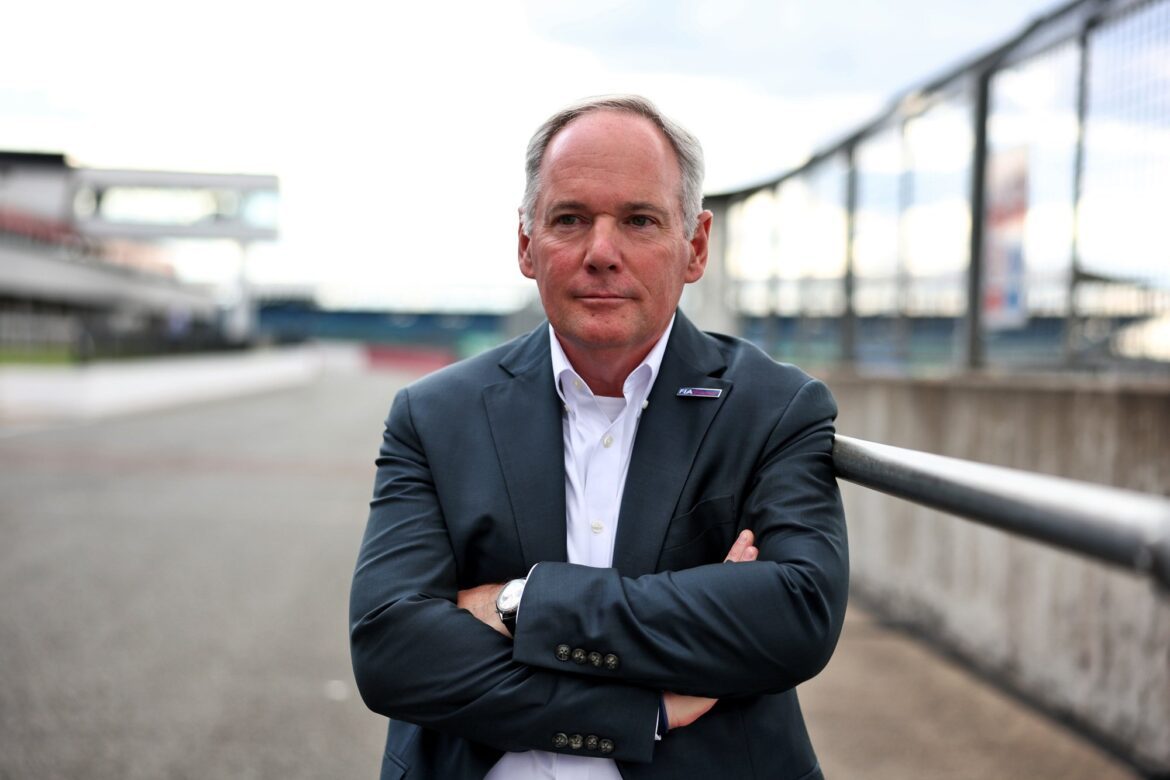Tim Mayer Withdraws from FIA Presidential Race, Solidifying Ben Sulayem’s Position
In a surprising turn of events, Tim Mayer, the American candidate for the presidency of the Fédération Internationale de l’Automobile (FIA), has announced that he will no longer pursue his candidacy. This decision significantly strengthens the current president, Mohamed Ben Sulayem’s, chances for re-election, which is set to take place on December 12 in Tashkent, Uzbekistan.
Mayer’s Candidacy and Withdrawal
Tim Mayer had officially launched his campaign back in July, joining forces with Laura Villars and Virginie Philpott. However, as the election date approached, Mayer shared his reasons for stepping back from the race. In a statement to the media, he expressed his belief that the election process for the FIA presidency was flawed, stating, "I will say something that may sound contradictory: the election for the FIA president is already over. But our campaign is not over, nor is our mission to protect the integrity and reputation of the FIA."
Mayer did not hold back in his criticism of the electoral process. He questioned how an election could be deemed concluded when the voting was still over two months away. According to him, the current situation suggests that there would be no real election this time around. "There won’t be a debate of ideas, a comparison of visions, or an assessment of leadership. There will only be one candidate, the incumbent president. And that is not democracy; it is the illusion of democracy," Mayer asserted.
Concerns About the Electoral Process
Mayer’s comments highlight his concerns about the democratic principles that should govern the FIA. He emphasized that the current system deviates from the organization’s core values. "During our campaign ‘FIA Forward,’ we spoke of fairness, reform, and integrity, of returning the FIA to its members. But the outcome of this election and the flawed process that governs it prove how far we have strayed from that ideal," he added.
These remarks raise critical questions about the transparency and legitimacy of the electoral process within the FIA. Mayer’s withdrawal underscores the challenges faced by candidates who wish to run against an incumbent president when the election framework appears to favor the current leadership.
FIA Electoral Regulations
According to the FIA’s statutes, a presidential list can only exist if it includes a vice-president for sports from each region of the world. These vice-presidents must be individuals who have previously been nominated for the World Motor Sport Council and are associated with events on the FIA’s international calendar.
The situation has become even more complicated, as Fabiana Ecclestone, the wife of former Formula 1 owner Bernie Ecclestone, is the only representative from South America and has publicly pledged her support for Ben Sulayem. This lack of diverse representation means that other candidates are unable to present a complete list by the final deadline of October 24, effectively leaving Ben Sulayem in a position to run unopposed.
Implications for the FIA
Mayer’s decision to withdraw not only highlights his concerns about the electoral process but also raises broader implications for the FIA as an organization. The absence of real competition in the upcoming election may lead to questions about the legitimacy of Ben Sulayem’s presidency. Without the opportunity for robust debate and discussion of ideas, the FIA risks becoming stagnant, with little accountability or drive for reform.
Additionally, Mayer’s remarks suggest a growing discontent among some members regarding how the FIA operates. His reference to the campaign "FIA Forward" indicates a desire for significant change within the organization, emphasizing that its focus should be on the members rather than the leadership’s self-interest.
The Future of FIA Elections
As the December election draws closer, the implications of Mayer’s withdrawal will continue to unfold. The FIA’s leadership faces the challenge of addressing the concerns raised by Mayer and ensuring that future elections are conducted in a manner that upholds the democratic principles the organization claims to value.
Without a meaningful electoral challenge, it remains to be seen how Ben Sulayem will respond to the criticisms levied against the current electoral system. Will he take steps to reform the process and restore faith in the FIA’s governance? Or will he continue to preside over an organization that many believe is veering away from its foundational principles?
Conclusion
Tim Mayer’s exit from the race for FIA president has left Mohamed Ben Sulayem in a strong position for re-election, although this scenario raises important questions about the integrity of the electoral process within the FIA. Mayer’s candidacy brought to light significant concerns regarding the democratic nature of the organization, and his withdrawal may serve as a catalyst for discussions surrounding future reforms.
As the date of the election approaches, the FIA must consider how to address the issues raised by Mayer and ensure that its leadership is held accountable. The lack of competition in the upcoming election may lead to stagnation, and it is crucial for the organization to reflect on its values and mission moving forward.
In the world of motorsport, the FIA plays an integral role in governance and regulation, making it essential for the organization to uphold the standards of democracy and integrity. As the landscape continues to evolve, the need for transparency and accountability within the FIA will remain paramount.
